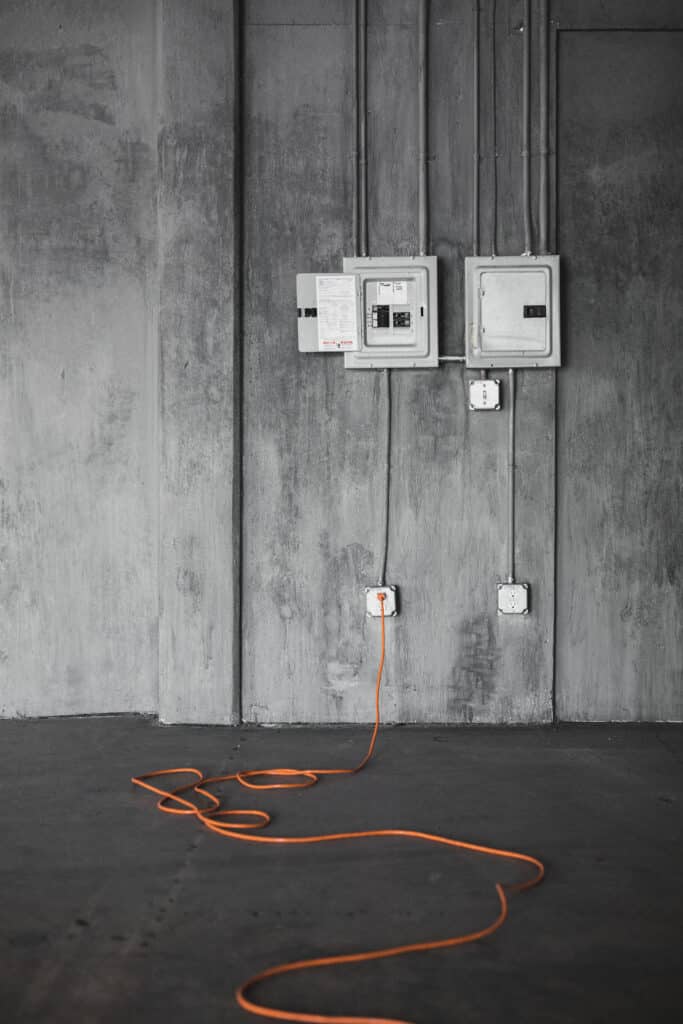With a number of electrical system options, it is imperative to choose the right system for your project. Residential and commercial electrical systems are vastly different, from the way each system is installed and how they run, to their effectiveness and efficiencies. To feel confident the system you choose can manage the expected power load, it is necessary to understand the differences between residential and commercial needs and why commercial electrical systems are particularly vital for large-scale commercial projects. You may also find it necessary to consult a professional electrical engineer.
Residential electric systems are typically single-phase systems that accommodate a much lighter electrical load and are more streamlined to install and maintain. On the other hand, commercial electric systems are incredibly complex due to the high-power requirements of commercial and industrial buildings and their electrical loads. Commercial systems not only require more power, but installation and maintenance by highly trained electrical engineers.
Following we explain the different types of electrical systems and considerations to be taken when choosing the right electrical system for your residential or commercial project.
Specific Electrical Systems
Single-Phase Systems include 240/120V and 208/120V. Single-phase (or 1Φ) is typically used for small to medium-sized multi-family residential projects or smaller business buildings. For example, a large house, apartment buildings with breezeway corridors, or a small independent living facility. You would not, however, want to consider a 1Φ system for large-scale industrial or commercial buildings, as the system would be inadequate to handle the power load.
Three-Phase Systems include 208Y/120V, 480Y/277V and 600Y/347V. Three-phase (or 3Φ) is more commonly used for commercial projects such as retail, restaurant, and large-scale buildings with three or more stories. For example, E-Urban, podiums, wraps, high rises, hotels, larger-scale assisted living/memory care facilities, and other large (non-podium, non-wrap) projects. Three-phase systems are also commonly used in multi-family projects with elevators, trash compactors, pumps and other larger motors on site.
Commercial projects such as retail and restaurants need 3Φ power for kitchen equipment that will require 3Φ power for ovens, kitchen exhaust hoods, dishwashers and water heaters. In larger facilities, such as industrial and manufacturing buildings, the voltages 480Y/277V & 600Y/347 are used to power single-phase 277 volt lighting and larger three-phase 480V or 600V HVAC/motor/pump loads. Other commercial project types that require 3Φ power are dental offices, medium offices/labs/warehouses, manufacturing, and entertainment venues (i.e. theaters).
Additional Systems to consider are 240/208/120V, 4-wire Delta (also known as high-leg or wild-leg delta). High-leg, or wild-leg delta system, are often found in older manufacturing facilities with mostly three-phase motor loads and some 120-volt single-phase lighting and plug loads. While these systems are not as commonly used today, they may require familiarity should you be called upon to repair, rewire, or maintain them.
Important Considerations When Choosing a Commercial Electrical System
When choosing a commercial electrical system, it is critical to consider the types of equipment (elevators, lift stations, trash compactors, and other large loads) that will be utilized on-site. It is also important to consider the scale of the project itself. For example, the scale of a single-family home will differ greatly from a multi-story building or a mixed-use project with retail, a garage on the first few levels, and residential dwelling units on the levels above.
It is a common mistake to select the incorrect electrical system or fail to coordinate with the local utility company regarding the available power in the vicinity of the project. For example, instances may occur where a medium-sized multi-family project may have an elevator and the utility does not have any nearby 3Φ power to bring to the site. Or a medical facility that may be single-story may still require 3Φ power for more complex medical machinery. It is always a good rule of thumb to adequately communicate with the local utility company, as the scope and specific needs of a project will determine the suitable amount of power needed and the proper system required.
As a property or building owner, or a contractor working on a new project, it is important to intrinsically understand the ins and outs of electrical systems. By having this information readily available to you, you can confidently move forward in choosing the right electrical system that aligns with your building’s needs and specific project requirements.
The highly trained, professional team at VP Engineering has the experience and expertise to provide your property with high-quality electrical services. We invite you to contact our team today for a consultation regarding your property needs and future commercial electrical system projects.
About VP Engineering
VP Engineering is a top Charlotte-based MEP design firm offering engineering expertise in senior living, multi-family, hospitality, and retail/commercial markets worldwide. With experience in a wide range of building types, our MEP engineering services help keep projects on budget and achieve your goals. Learn more at vpce.com.



